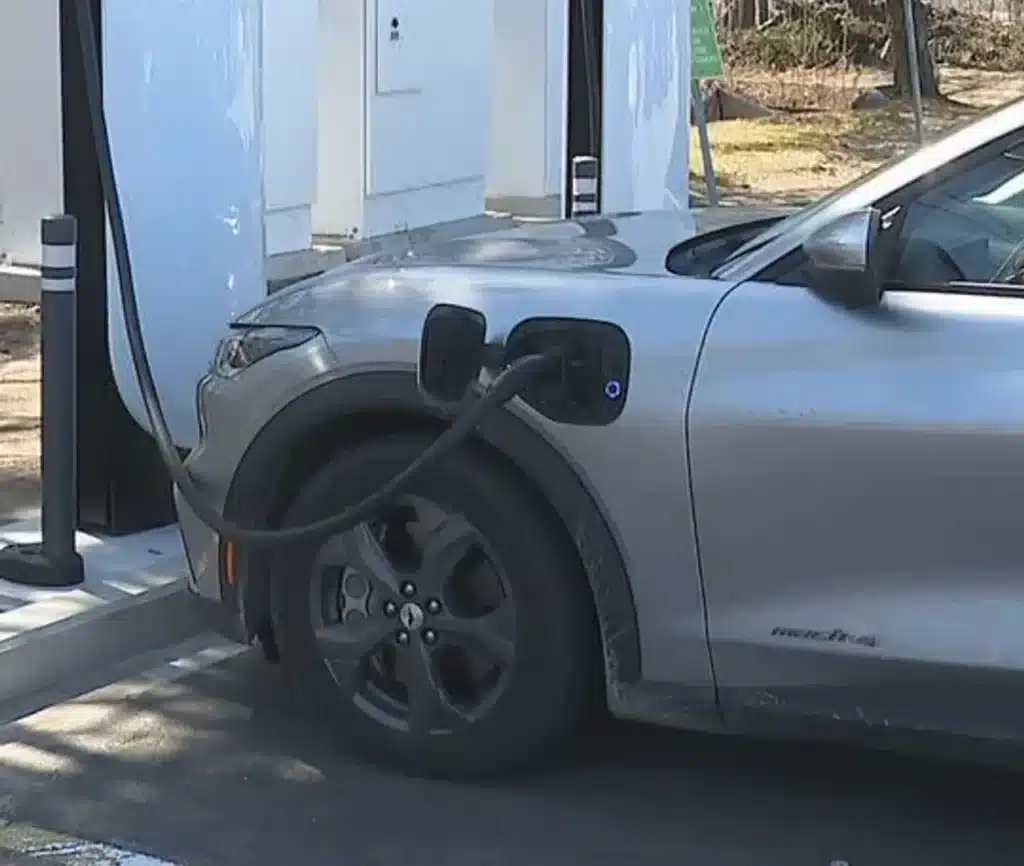NEVI Program Funds Up to 80% of EV Charging Infrastructure
Looking to add EV charging at your business but unsure about the costs? The National Electric Vehicle Infrastructure (NEVI) Program can pave the way to make EV charging an affordable reality. Through the NEVI program, public and private entities can request funds for the installation, networking, and maintenance of an EV charging infrastructure.
NEVI was created under the Bipartisan Infrastructure Law (BIL) in 2021. The Inflation Reduction Act (IRA), signed into law in 2022, provides additional resources to improve access to EVs and EV charging infrastructure. The IRA was the single largest investment in climate and energy in American history. The Joint Office of Energy and Transportation (Joint Office) supports NEVI and its deployment of zero-emission, convenient, accessible, and equitable transportation infrastructure.
According to the Joint Office website, the funding covers up to 80% of the costs for building EV charging infrastructure, including:
- The acquisition, installation, and network connection of EV charging stations to facilitate data collection, access, and reliability;
- Proper operation and maintenance of EV charging stations; and,
- Long-term EV charging station data sharing.
Since the final rules for the NEVI program were approved on March 30, 2023, 21 states have announced site application awards totaling 520 sites and nearly 2,400 charging ports. Eight NEVI-funded sites are currently open with dozens expected to come on line in the coming months. While four states (Maine, Ohio, Colorado, and Pennsylvania) have already announced awards for their second NEVI application round, 29 states and the District of Columbia and Puerto Rico have yet to announce awards for their first round process.

The Program’s Slow Start Delays Funding
To date, $230 million has been awarded through the NEVI program – a number that is far off the $7.5 billion in funding the government has earmarked to help states build 500,000 chargers by 2030. Critics have been quick to point out that only eight EV charging stations are operational as of May 2024.
Loren McDonald, CEO of EVAdoption, provided context about the sluggish speed of NEVI rollouts.
“People need to understand that the NEVI program is an entirely new procurement process for states, and the state DOTs have to get public feedback regarding the site locations, develop the RFP and application process and scoring system, which can take 6 to 9 months or more, and then allow a few months each for the application submissions and then to scoring and award process.
Then, once companies are awarded sites, it takes a few months to work through contractual agreements, the environmental review process and then as much as 12-18 months for the charging companies to build and open the stations.”
Those states that have already opened their first charging stations will serve as a blueprint for those starting the process in 2024 and beyond.
Case Study: Maine’s First Nevi EV Charging Stations
Maine was the fifth state in the US to install NEVI-funded EV charging. Eight ports were installed with NEVI funds at a shopping center in Rockland, ME, the state’s first NEVI-funded station. These ports support a variety of EVs equipped with both SAE J3400 (NACS) and CCS connectors. The ports are part of the state’s Recharge Maine initiative. Five of those ports were funded with $18 million in NEVI funds. More EV charging stations will be added this year in Houlton, Machias, and Rumford, said Hannah Pingree, director of the Maine Governor’s Office of Policy Innovation and the Future.
Maine’s Ambitious Climate Goals
Through its “Maine Won’t Wait” climate action plan, the state of Maine has ambitious climate goals, including a renewable portfolio standard of 80% by 2030 and 100% by 2050. The goals include reducing greenhouse gas emissions by 45% by 2030 and 80% by 2050.
At the unveiling of the stations, participants cheered the positive action for the local and global environment. Bruce Van Note, Maine transportation commissioner said: “Expanding Maine’s EV charging network will help reduce range anxiety in our rural state. It will also improve our quality of life by reducing carbon emissions from the transportation sector.”
Automotive Charging Solutions Offers End-To-End EV Charging Solutions
Public EV charging, supported by NEVI funding, is just a part of the EV charging solutions ACS provides. Contact them today!

Electric Vehicle Marketing Consultant, Writer and Editor. Publisher EVinfo.net.
Services